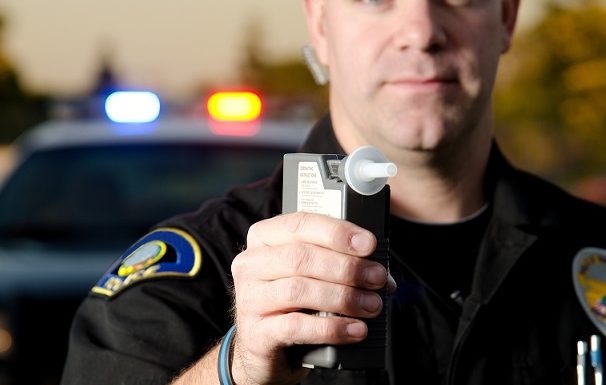As a DWI defense attorney, I’m very familiar with DWI checkpoints. The actions you take at a DWI checkpoint can affect the outcome of your stop, even if you’re sober.
Drive in Missouri long enough and eventually you’ll run into a DWI checkpoint. Though contested by many, checkpoints are legal in Missouri. Police officers will set up a roadblock, briefly detain drivers, and investigate for signs of intoxication.
Officers will detain drivers suspected of being under the influence (of alcohol or other substances). At this point, the police may request field sobriety tests and ask for a breath sample to get preliminary intoxication results.
The goal of a DWI is safety. The Center for Disease Control and Prevention estimates that checkpoints prevent 10% of DUI-related deaths. While this may be the case, innocent drivers can also get swept up in these checkpoints. They may even find themselves wrongly charged with DWI. This is where a DWI defense attorney becomes important.
Know Your Rights at a DWI Checkpoint
Remember – you’ve got rights. Learn them, and use them. They can make the difference between an arrest and a quick pass through the checkpoint.
Take a look:
- You Don’t Have to Answer Questions – This doesn’t mean give the officer the silent treatment. Instead, politely inform the officer that you do not wish to answer questions. However, you do have to give the officer your name and ID if requested.
- You Can Avoid the Checkpoint with Legal Traffic Maneuvers – However, this won’t necessarily prevent an officer from pulling you over. They may be suspicious of your reason for turning around, but the act itself is not illegal.
- You Can Refuse a Search – An officer must have probable cause or a warrant to search you or your vehicle. If they request permission, politely decline. Never physically resist a search.
- You Can Refuse Field Sobriety Tests (FST) – The tests that are given to determine intoxication are intentionally difficult. Many people cannot perform well on the tests when they’re sober. Furthermore, cameras will record your FST. Prosecutors will use the footage as evidence against you at your trial. Again, politely refuse the field sobriety test.
- You Can Ask if the Police are Detaining You – It’s a simple question that you can ask without fear of retaliation. If the answer to the question is “no,” officers must release you.
You’ve Been Stopped at a DWI Checkpoint – Now What?
Stopping for a DWI checkpoint can be a scary experience, even for a sober driver. But if you know your rights, keep your cool, and treat the officers involved with respect, you should be fine. Let’s take a quick look at the process for successfully navigating a checkpoint:
- Have Your Driver’s License Ready – Present it to the officer upon request. Though you may feel that a checkpoint violates your rights, the US Supreme Court has ruled they are legal and valid. Of course, this doesn’t mean you have to answer questions – which brings us to step 2.
- Don’t Answer Questions – Remember, this is one of your rights. You do not need to be rude to the officer either. Simply inform her that you do not wish to answer questions.
- Follow Directions, but Don’t Participate in a Field Sobriety Test – An officer might ask you to submit to an FST even if you’re sober. Politely decline and ask if you’re being detained.
- Request an Attorney – It is possible that an officer will arrest you at a checkpoint, even if you’re sober. Remember that you have the right to an attorney, and you can request that your attorney be present for any questions. Cooperate with the officers but do not answer their questions or agree to participate in field sobriety tests.
After an Arrest
A DWI arrest is a scary experience. The charges are serious, it is essential that you hire a lawyer to assist you. Reach out the Byrnes’ Law Firm today for a free consultation. An experienced DWI attorney can help you navigate the court system and obtain the best possible outcome for your charges.
